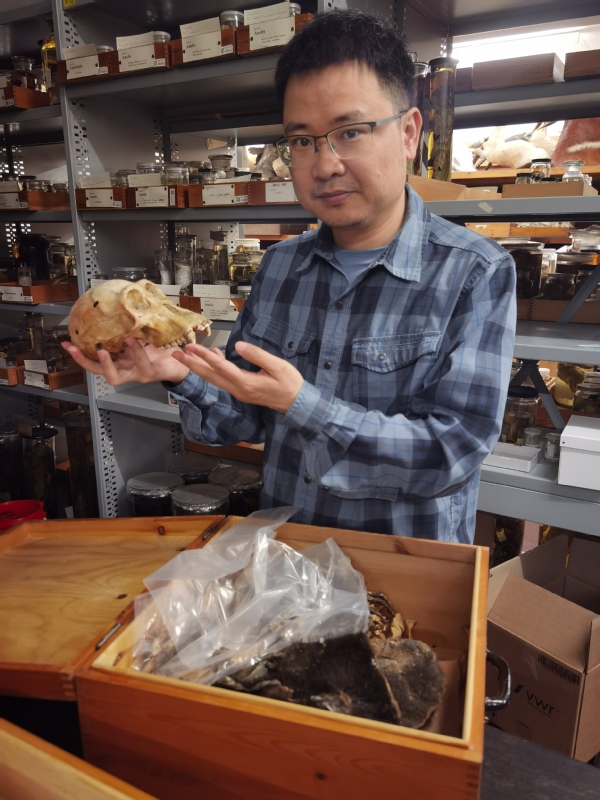Dialogue@ZJU: With Prof. ZHANG Guojie, Director of ZJU’s Center for Evolutionary & Organismal Biology
【Editor’s Note: In this edition of Dialogue@ZJU, we spotlight Professor ZHANG Guojie, a trailblazer in biodiversity genomics. His research programs address fundamental questions about the origin of species, including human evolution, using interdisciplinary approaches. His groundbreaking work in species evolution and adaptation is reshaping our understanding of genome evolution. A key highlight of his tenure at Zhejiang University is establishing the Center for Evolutionary & Organismal Biology, which champions interdisciplinary research. This conversation sheds light on his impactful research and innovative approach at the intersection of evolutionary and molecular biology. Join us in uncovering Professor Zhang's influential work.】

Q1: Brief us on your research. What has been the most interesting discovery in your field recently?
ZHANG: Our research focuses on biodiversity genomics and evolutionary biology. We use comparative genomics approach to study the evolutionary history and adaptation mechanism of modern species including human. Our group has organized several biodiversity genomic consortiums to resolve the long-lasting tree of life challenges in vertebrate taxa, such as birds. Our recent comparative genomics across primate have revealed key genomic changes underlying the evolution of traits like brains, limbs, and social system that are crucial for the adaptive diversification of primates.
Q2. You joined ZJU in 2022 and set up the Center for Evolutionary & Organismal Biology. How did the Center come out?
ZHANG: Darwinian evolutionary theory is the fundamental theory for all disciplinaries in life science. Evolutionary thinking is important for biologists to understand how and why the traits evolved. However, this has often been ignored in biomedical research field which emphasize more on the study of mechanism. We hope our new center can promote the communication between evolutionary biologists and molecular biologists, train the students the ability to drive the interdisciplinary programs.
Q3. What impact do you hope your work will have on Science/Society?
ZHANG: A key goal of our center is to introduce the evolutionary thinking to researchers from broader background by developing cross disciplinary programs. Particularly, through these programs, we hope more biomedical researchers and doctors can embrace the evolutionary theory and start thinking why humans are vulnerable to infectious and degenerative disorders from evolutionary perspective.
Q4. Why did you choose Zhejiang University when you decided to come back to China?
ZHANG: Zhejiang University is one of the top universities in China and has been very successful in developing cross-disciplinary research programs in the past decades. It is a renowned university attracting the most talented students in China.
Q5. As a professor, what advice do you have for undergraduate and graduate students?
ZHANG: Keep tracking the most up-to-date research progress, and think deep on the topics that you are interested in.
Source: Zhejiang University School of Medicine